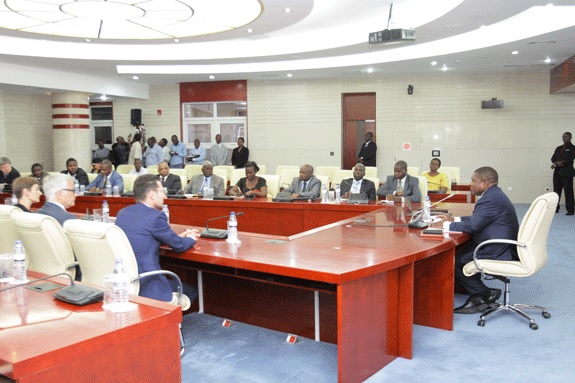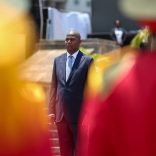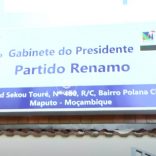Mozambique: Police uses tear gas to disperse Mondlane supporters in Maputo
Nyusi appoints “Contact Group” for peace talks

Noticias
Mozambican President Filipe Nyusi on Tuesday announced the creation of a “Contact Group”, formed by several ambassadors which will support the attainment of a “sustainable peace”.
A press statement from Nyusi’s office explained that this group has been set up “in the framework of the dialogue to achieve effective and lasting peace”, and in the wake of the phone conversations between Nyusi and Renamo leader Afonso Dhlakama.
The statement says that the contact group “will provide coordinated financial and technical assistance, and carry out other tasks as indicated in their terms of reference”.
The Contact Group will be chaired by the Swiss ambassador (currently Adrian Hadorn), and co-chaired by the American ambassador (Dean Pittman). The other five members of the group are the ambassadors of China, the European Union and Norway, and the High Commissioners of Botswana and of the United Kingdom.
The Contact Group, which will start work this week, is intended to advise the two working groups appointed last month by Nyusi and Dhlakama, to work on decentralization and on military issues.
Nyusi appointed two academics and jurists, Albano Macie and Eduardo Chiziane, to the working group on decentralization. Renamo’s appointees to this group are Saimone Macuiana and Maria Joaquina, who are both former members of the National Elections Commission (CNE). Macuiana headed the Renamo side in the negotiations that produced the September 2014 agreement on a cessation of hostilities, an agreement that Renamo refused to implement.
For the working group on military questions, Nyusi appointed two retired army officers, and veterans of the independence war, Gen Armando Panguene and Col Ismael Mangueira. Panguene is also one of the country’s top diplomats who has served as Mozambican ambassador to Lisbon, London and Washington.
The Renamo members of this group are parliamentary deputy Andre Magibire and Leovilgildo Buanancasso, who is currently a member of the Council of State, a body that advises the President of the Republic.
A few days later, Nyusi announced that he had issued invitations to international bodies to witness the resumption of dialogue between the government and Renamo. He said that in his phone contacts with Dhlakama, the two had reached agreement on the appointment of “international advisors”.
It was assumed that these would be foreign experts who would travel to Maputo for meetings. But intead Nyusi has appointed ambassadors who are already on the spot, and who will not need to travel to and from other countries in order to attend meetings.
Nyusi made it clear in February that the “international advisors” will not be mediators, and Dhlakama seems to have accepted this, thus abandoning Renamo’s longstanding demand for foreign mediation.
In the second half of 2016, a large team of international mediators struggled, without much success, to achieve consensus between Renamo and government delegations. The mediators could not even secure a ceasefire between Renamo and government forces over the Christmas holiday.
Yet phone contacts between Nyusi and Dhlakama, without any foreign involvement, led to Renamo declaring a truce that took effect on 27 December. The truce has held, and there have been no further report of Renamo ambushes on the roads or of clashes between the Renamo militia and government forces.
The truce expires on 4 March, but it seems unlikely that fighting will resume. At the opening of the current sitting of the Mozambican parliament, the Assembly of the Republic, on Monday, the head of the Renamo parliamentary group, Ivone Soares (who is Dhlakama’s niece) said she expected the true to be “definitive”.












Leave a Reply
Be the First to Comment!
You must be logged in to post a comment.
You must be logged in to post a comment.